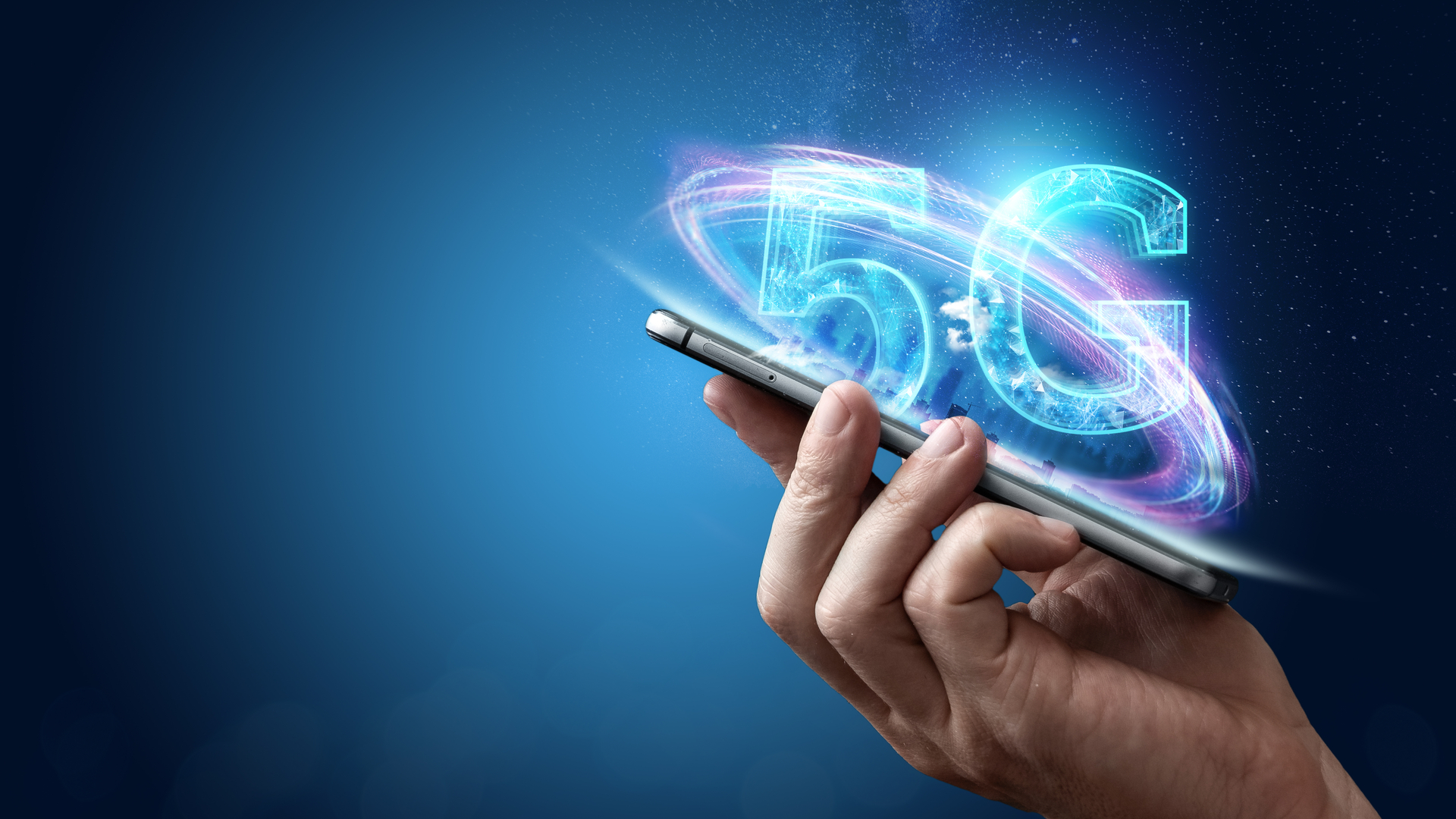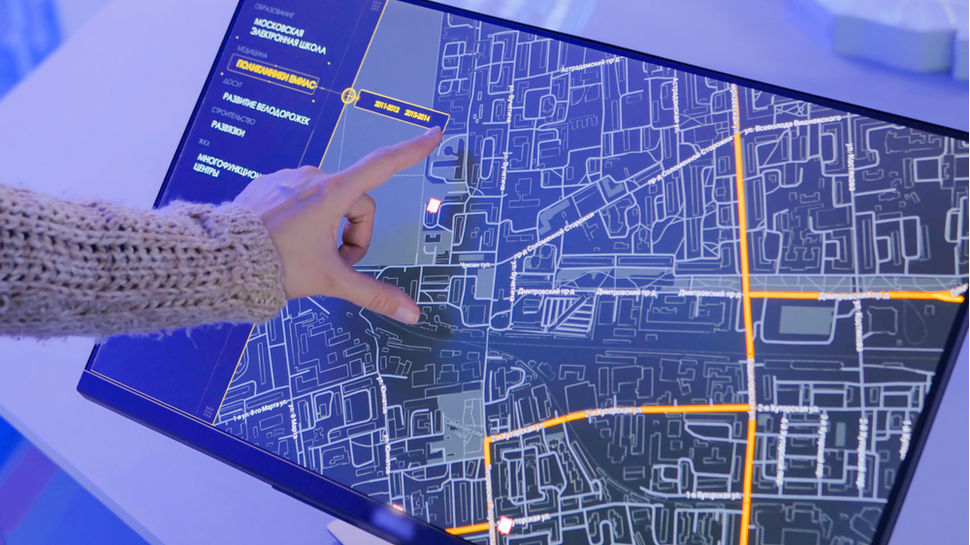The dark side of 5G
Don't believe the 5G scare stories

Moscow has become one the first cities in the world to start testing 5th generation networks. Users have been interested in 5G for a long time and, as a result, a huge number of myths have arisen around the subject.
What makes the new technology distinctive is its Gigabyte data transfer speeds, minimal time delays, high energy efficiency and ultra-high mobility for millions of connected devices. All this opens up new horizons for the development of a wide range of digital services and technologies, including the Internet of Things (IoT), driverless vehicles and telemedicine.
But alongside the incredible possibilities of 5G and the benefits it brings in various spheres of our life, there are also lots of “scare stories” - about its destructive influence on human health and insecure data transmission, for example. The upshot is that the ordinary user finds it more and more difficult to separate truth from fiction. So, let’s take a look at this together: is there really any cause for fear?
- 'Unscientific' anti-5G poster banned by ASA
- Moscow wants to be a model smart city; this is how they plan to achieve it
- Rethinking operations and security for 5G
Myths and reality
1. Data Security
On the face of it, having up to a million wireless devices per square kilometer operating simultaneously on the network would be a real gift to hackers. This is particularly relevant for IoT (Internet of Things) systems, which are designed to monitor vitally important communication lines, transport arteries, energy networks and the urban environment. But it’s not that simple: as the mobile networks improve, so too will the devices themselves. The SIM cards we are all familiar with will gradually become a thing of the past and be replaced by so-called eSIMs. These are tiny microcircuits that are built into telephones during the manufacturing process and can be used to “pour in” critically important information via the radio access network.
As a general rule, manipulation of personal data occurs not on this level but on the data storage and management level, so it’s not entirely fair to maintain that 5G itself can pose a danger to information privacy. Some countries, including pioneers in 5G implementation such as China, are setting lots of additional requirements for these devices and developing new encryption and data protection algorithms. Specialists in Moscow are also currently working to create the most optimal and safe ways of deploying high-speed networks.
2. Harmful Impact of 5G Networks on the Urban Ecosystem and Human Health
Are you a pro? Subscribe to our newsletter
Sign up to the TechRadar Pro newsletter to get all the top news, opinion, features and guidance your business needs to succeed!
The adverse impact of 5G on the urban ecosystem is often greatly exaggerated. Radio access equipment is certified to all international standards and complies with health regulations. To finally dispel the fears of big-city dwellers, Moscow has initiated a large-scale laboratory study of the potential impact of the new wireless technologies on health and the urban environment. Specifically, answers will be sought to the following questions: how dangerous is 5G for people, and how dense should the base station network be to minimize the impact of radio waves?

Moscow's experience
Moscow's Department of Information Technology is actively deploying 5G in the city and it is literally helping to save lives. The new technology’s capabilities were first applied in telemedicine. Overseen by a remote council of surgeons, two operations have been carried out online – to remove a cancer tumor and extract an NFC chip. Thanks to the high image quality, speed and absence of any delay in signal transmission, everything went well.
Moscow has to date set up nine 5G pilot zones. The technology can already be tested on Tverskaya Street, at the VDNH exhibition center, in Luzhniki and the Skolkovo innovation center. In the near future, the network will also become operational in Zaryadye, Gorky Park, Sparrow Hills and the Moscow-City business center. All of Russia’s Big 4 operators (MTS, MegaFon, Beeline and Tele2) are taking part in the project on the basis of long-term contracts, and each of them has its own coverage zone. The key objectives are to study interaction between 5G and previous-generation networks and to trial new capabilities, functionality and services. Scenarios for using 5G technologies for the urban economy and the needs of the Moscow authorities will also soon be worked up in the pilot zones.
In addition, in early 2020, Moscow will have a 5G demo center, in which businesses and developers will be able to test their ideas using real 5G equipment. This will enable them to take decisions on whether to market their products.
To ensure that the numerous devices required for such large-scale technical solutions do not disfigure the city’s streets, Moscow has come up with a plan to improve the urban environment. Work is now underway to replace the old, bulky dual-purposes masts and posts (supporting street lights and antenna feeder devices). The most massive elements of the networks are being removed to so-called “digital wells”, while in the historical part of the city, all the aerial communication lines, in particular wires interfering with the view, are being moved underground.

Global 5G experience
Interest in 5th generation networks is a global phenomenon. Besides Moscow, test sites have already been launched in Melbourne, Singapore, Helsinki, Barcelona, Bangkok, Houston and Los Angeles. Each country is also adapting 5G to its own needs. In Tokyo, for instance, it has been introduced to stream video from CCTV cameras in the airport to maintain security in light of constantly growing passenger numbers.
Seoul has used 5G to create a mobile office, which people can enter without ID cards or passes, on the basis of facial recognition technology alone. A special mobile system replaces work desks to optimize the working environment.
In Barcelona and Beijing, 5G has been successfully used to broadcast concerts and festivals. Incidentally, Moscow too has tested broadcasting a football match, which viewers were able to follow in real time in virtual reality.
When will 5G be available in Moscow?
The main barrier to rapid and mass development of 5G remains the prohibition on using frequencies in the 3.5 – 3.8 GHz range (these are the frequencies that have been allocated for 5G networks in Europe and the US). In Russia, this band is almost entirely occupied by government communications and military satellite systems. Making them available would mean that somebody will have to recreate all this from scratch, but in a different frequency band. A challenge on this scale requires thorough evaluation, agreement and coordination between several government agencies.
Nevertheless, experts predict that commercial use of the 5G networks in Moscow could begin as early as 2021. Initially, 5G zones will be set up where the demand is greatest: areas with a high population density, major transport interchanges, shopping malls and business centers.
The transition to 5G does not by any means imply that the previous-generation networks will stop working. Most likely, GSM, which provides basic comprehensive coverage of the country for emergency communication systems, and LTE will remain. Existing mobile devices will continue to function as before, but anyone who needs better communication quality - high data transmission speeds or minimal transmission delays – will have to buy a new device with 5G compatibility.
Mikhail Alexeev, Head of Advanced Communications and Media (AC&M)
Mikhai Alexeev has spent over two decades working in the c-suite of some of the most prestigious Russian and international consulting and telecommunications firms. Between 1994 to 1996, Alexeev headed up the Russian operations of the British Telecom company. Thereafter he took a role as CEO of Transworld Communications. That was up until 1998, when we was appointed as head and partner at J’son & Partners Consulting in Moscow. Today, Alexeev is Head of Advanced Communications and Media (AC&M).